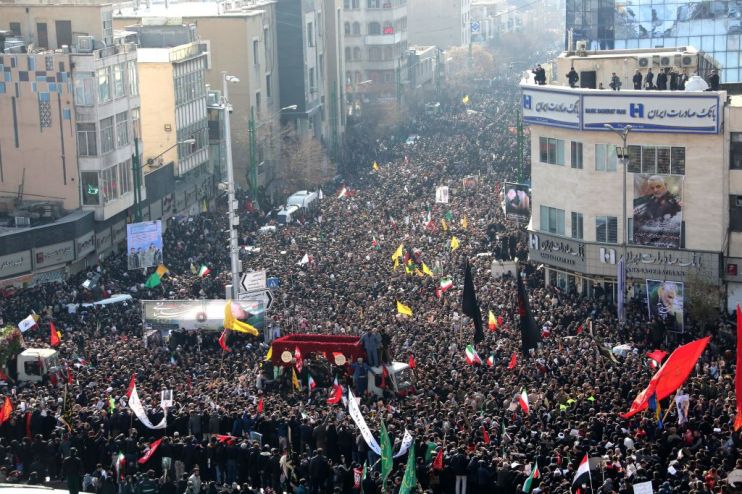Soleimani death: US denies Iraq withdrawal after leaked letter

The Pentagon has said a US general’s letter telling Iraq that US-led coalition troops would withdraw from the country after the death of Iran’s military commander Qasem Soleimani “was a mistake”.
Instead, US military officials insisted soldiers would remain in Iraq despite a letter said the US would be “repositioning forces in the coming days and weeks” after Iraqi MPs had called on the US to take its troops.
Read more: FTSE falls sharply as Soleimani death rocks stocks
“That letter is a draft, it was a mistake, it was unsigned, it should never have been released,” joint chiefs of staff chairman general Mark Milley said after Reuters and AFP published the letter.
US defence secretary Mark Esper said there had been “no decision whatsoever to leave”, however.
Iraq’s politicians demanded that US soldiers withdraw from the country after President Donald Trump ordered the assassination of Iranian military commander Soleimani.
Soleimani died in a drone strike in Baghdad on Friday.
Iran has since threatened revenge against the US, and Iraq called on the US to abandon its military presence in Iraq.
Read more: Soleimani’s daughter warns ‘crazy’ Trump of dark days ahead
The letter appeared to have been sent by Brig Gen William H Seely, head of the US military task force in Iraq, to Abdul Amir, the deputy director of Combined Joint Operations.
“As requested by the Iraqi Parliament, and the Prime Minister, CJTF-OIR (Combined Joint Task Force – Operation Inherent Resolve) will be repositioning forces over the course of the coming days and weeks to prepare for onward movement,” the letter read.
But Esper told reporters: “I don’t know what that letter is… We’re trying to find out where that’s coming from, what that is.
“But there’s been no decision made to leave Iraq.”
Read more: Boris Johnson to hold crisis talks over Soleimani killing
Milley added that the letter was a poorly worded draft that was unsigned and was being cvirculated for input.
“[The letter] was sent over to some key Iraqi military guys in order to get things co-ordinated for air movements, etcetera,” Milley said. “Then it went from that guy’s hands to another guy’s hands and then it went to your hands. Now it’s a kerfuffle.”